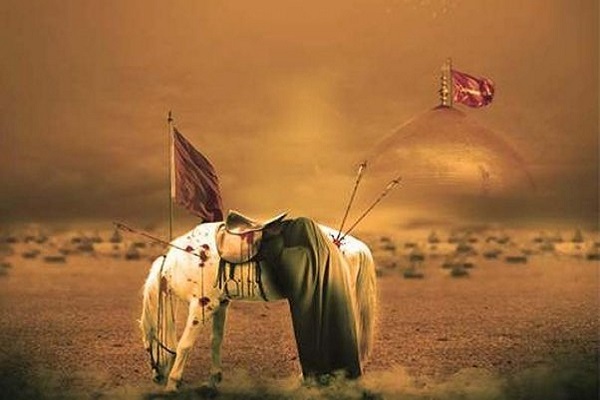AhlulBayt News Agency: Imam Hussein (AS) was oppressed and that references to it and some other dimensions of the Ashura uprising could be seen in some of the verses of the Quran.
Imam Hussein (AS) rose up against the unjust and illegitimate rule of Yazid. At first, no one helped him. Then he and his companions were besieged and martyred in a bloody battle.
From this aspect, the oppression can be an example of what some Quranic verses refer to.
In a verse of the Quran, it has been emphasized that if someone is killed unjustly and wrongfully, the heirs of that person could demand Qisas(retributive justice): “Do not kill the soul whom Allah has forbidden except by right. If he is slain unjustly, We have given his heir authority. But let him not exceed the limit in slaying, for he will be helped.” (Verse 33 of Surah Al-Isra)
Respect for people’s life is seen in all religions and cultures. But there are Hadiths according to which the martyrdom of Imam Hussein (AS) and his companions is referred to as a clear example of wrongful killing. Also, according to these Hadiths, the heir who has the right to demand justice for the blood of Imam Hussein (AS) is Imam Mahdi (AS), the promised savior.
In another verse, God says that someone who is wronged has the right to enter a fight to defend himself: “Permission to take up arms is hereby granted to those who are attacked; they have suffered injustice. God has all the power to give victory.” (Verse 39 of Surah Hajj)
According to some hadiths, this verse also refers to the oppression of Imam Hussein (AS).
In the story of Abraham (AS) and Ismail (AS), we read that Abraham was ordered to sacrifice his son and then God sent him a ram to be sacrificed instead of Ismail. In the Quran, the replacement has been referred to as a great sacrifice: “So, We ransomed him with a mighty sacrifice.” (Verse 107 of Surah As-Saffat)
Some interpreters of the Quran, according to the Hadiths that exist in this regard, believe that this great sacrifice was a person who was a descendant of Abraham and whose blood was shed on the path of God.
This person is said to be Imam Hussein (AS). According to a Hadith, God told Abraham (AS) about what would happen to Imam Hussein (AS) and Abraham (AS) cried a lot.
/129
Imam Hussein (AS) rose up against the unjust and illegitimate rule of Yazid. At first, no one helped him. Then he and his companions were besieged and martyred in a bloody battle.
From this aspect, the oppression can be an example of what some Quranic verses refer to.
In a verse of the Quran, it has been emphasized that if someone is killed unjustly and wrongfully, the heirs of that person could demand Qisas(retributive justice): “Do not kill the soul whom Allah has forbidden except by right. If he is slain unjustly, We have given his heir authority. But let him not exceed the limit in slaying, for he will be helped.” (Verse 33 of Surah Al-Isra)
Respect for people’s life is seen in all religions and cultures. But there are Hadiths according to which the martyrdom of Imam Hussein (AS) and his companions is referred to as a clear example of wrongful killing. Also, according to these Hadiths, the heir who has the right to demand justice for the blood of Imam Hussein (AS) is Imam Mahdi (AS), the promised savior.
In another verse, God says that someone who is wronged has the right to enter a fight to defend himself: “Permission to take up arms is hereby granted to those who are attacked; they have suffered injustice. God has all the power to give victory.” (Verse 39 of Surah Hajj)
According to some hadiths, this verse also refers to the oppression of Imam Hussein (AS).
In the story of Abraham (AS) and Ismail (AS), we read that Abraham was ordered to sacrifice his son and then God sent him a ram to be sacrificed instead of Ismail. In the Quran, the replacement has been referred to as a great sacrifice: “So, We ransomed him with a mighty sacrifice.” (Verse 107 of Surah As-Saffat)
Some interpreters of the Quran, according to the Hadiths that exist in this regard, believe that this great sacrifice was a person who was a descendant of Abraham and whose blood was shed on the path of God.
This person is said to be Imam Hussein (AS). According to a Hadith, God told Abraham (AS) about what would happen to Imam Hussein (AS) and Abraham (AS) cried a lot.
/129

